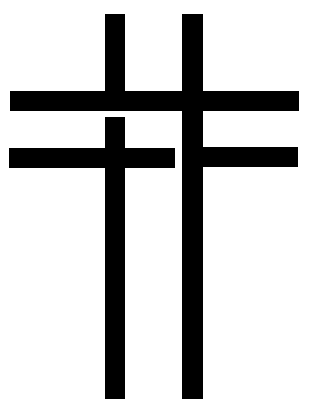Intersecting Geopolitical Events and Biblical Prophecy: Examining Ezekiel 38-39
- Three Crosses

- Dec 21, 2023
- 2 min read

In the realm of biblical prophecy and current events, the chapters of Ezekiel 38-39 stand out, especially in relation to the unfolding geopolitical dynamics involving Russia, Turkey, and Iran. This blog post aims to explore these chapters in more depth, aligning them with recent global developments and how these nations are increasingly mirroring the ancient scriptures.
Ezekiel 38-39: The Gog of Magog Prophecy
The prophecy of Ezekiel 38-39 describes a future invasion of Israel by a coalition of nations. Key verses include:
Ezekiel 38:2-3: "Son of man, set your face against Gog, of the land of Magog, the chief prince of Meshech and Tubal; prophesy against him and say, ‘This is what the Sovereign LORD says: I am against you, Gog, chief prince of Meshech and Tubal.'"
Ezekiel 38:5-6: "Persia, Cush and Put will be with them, all with shields and helmets, also Gomer with all its troops, and Beth Togarmah from the far north with all its troops—the many nations with you."
These passages suggest a coalition that includes regions correlating to modern-day Russia (Magog), Iran (Persia), and Turkey (Gomer, Togarmah).
Russia's Strategic Movements:
Russia, possibly represented by 'Magog,' has shown increased interest in the Middle East. Its military presence in Syria and alliances in the region can be seen as a strategic move towards Israel. This north-to-south direction of movement aligns with the prophecy's description of an invasion from the 'far north.'
Iran's Role: The Modern Persia:
Iran, directly named as Persia in the prophecy, plays a pivotal role. Its adversarial stance towards Israel and alliances with Russia and Turkey reflect the coalition prophesied in Ezekiel. Iran's involvement in regional conflicts and support for groups opposing Israel could be seen as laying the groundwork for the prophesied events.
Turkey's Dual Role: Gomer and Togarmah:
Turkey's unique geopolitical position and its recent involvement in Syria, alongside its complex relationships with both Russia and Iran, mirror the roles of Gomer and Togarmah. This dual identification points towards Turkey's significant role in the prophesied coalition.
Ezekiel's Prophecy and Current Events:
As we delve deeper into Ezekiel's prophecy, the parallels with current geopolitical events become more apparent:
Military Alliances and Conflicts: The strengthening military ties and conflicts involving these nations, particularly in the Middle East, echo the prophesied coalition's formation and its potential direction.
Diplomatic Relations: The fluctuating diplomatic relations among Russia, Turkey, and Iran, especially concerning Middle East policies, mirror the intricate alliances foretold in Ezekiel.
Regional Influence and Ambitions: Each nation's ambition to expand its influence in the Middle East can be seen as a step towards the scenario depicted in the prophecy.
The chapters of Ezekiel 38-39 provide a prophetic framework that intriguingly aligns with the current geopolitical landscape, especially concerning Russia, Iran, and Turkey. The undeniable parallels offer a unique perspective on how ancient prophecies might be reflected in contemporary global events. As these nations continue to shape the geopolitical narrative, their actions and alliances offer a compelling and thought-provoking reflection of Ezekiel's ancient words.






Comments